Our approach to advance treatment and patient care
 Our multidisciplinary approach includes working with neuropsychologists, and cognitive and behavioral neurologists to advance treatment and patient care through the collaboration between UMass Memorial Health and UMass Chan. Patient care needs are increasing across a longer lifetime, which leads to additional clinical challenges.
Our multidisciplinary approach includes working with neuropsychologists, and cognitive and behavioral neurologists to advance treatment and patient care through the collaboration between UMass Memorial Health and UMass Chan. Patient care needs are increasing across a longer lifetime, which leads to additional clinical challenges.
Our department collaborates with other medical professionals through telehealth neurology and stroke programs, which allows our providers to consult on a variety of medical concerns, bypass geographic transportation issues, and intervene for a diverse patient population. With 24/7 access to support, our teleservices are managed by attending physicians, fellows, and residents to provide diagnostic support through our trauma center addressing a variety of brain-behavior traumas, disorders, and diseases.
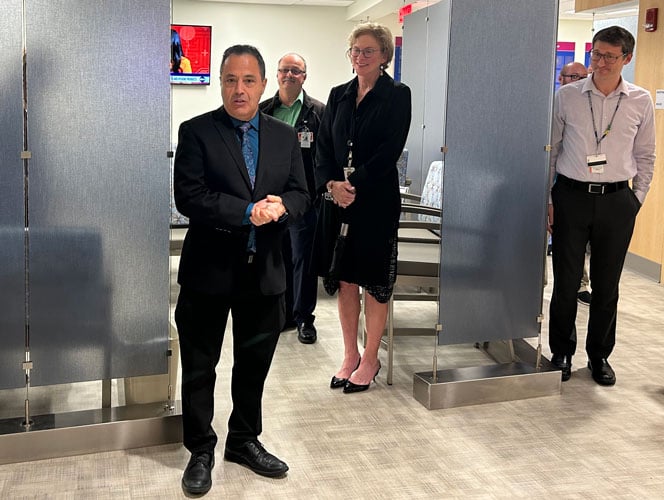 Sustaining patient care needs creates a lot of pressure on physicians. Brian Silver, MD, Vice Chair of Clinical Operations shares, "Provider burnout is a crisis in American Healthcare. Interventions like group activities alleviate burnout symptoms for the activity period. Burnout symptoms return once the provider is returned to the circumstance producing the burnout. Mitigating these circumstances provides a more permanent and long-term solution. Increasing the number of providers and focusing on the quality of care produced by the provider, rather than solely the quantity, will reduce burnout. In turn, this will improve access to care for all patients and reduce disparities in health care delivery."
Sustaining patient care needs creates a lot of pressure on physicians. Brian Silver, MD, Vice Chair of Clinical Operations shares, "Provider burnout is a crisis in American Healthcare. Interventions like group activities alleviate burnout symptoms for the activity period. Burnout symptoms return once the provider is returned to the circumstance producing the burnout. Mitigating these circumstances provides a more permanent and long-term solution. Increasing the number of providers and focusing on the quality of care produced by the provider, rather than solely the quantity, will reduce burnout. In turn, this will improve access to care for all patients and reduce disparities in health care delivery."
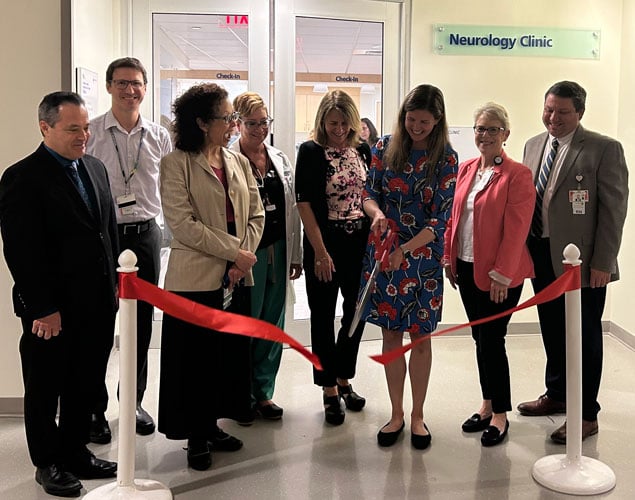 In 2023, AM Barrett, MD, Chair of Neurology opened the Cognitive and Behavioral Neurology Clinic between UMass Memorial Health and UMass Chan Medical Center to provide treatment solutions to patients with neurological disorders, mild cognitive impairment (MCI), or Alzheimer’s Disease (AD) and other dementias. The operation of the clinic is guided through Dr. Barrett’s vision and understanding of the behavior of neurology which includes the importance of incorporating interdisciplinary treatment care for patients. Dr. Barrett’s focus on the discipline of behavioral neurology drives her to develop better care transitions, to aid the imminent needs of patients with cognitive impairments and neurological degenerative disease. The clinic represents a history of success in integrating clinical, research, and education missions in memory disorder programs with the innovative translational therapeutics at UMass.
In 2023, AM Barrett, MD, Chair of Neurology opened the Cognitive and Behavioral Neurology Clinic between UMass Memorial Health and UMass Chan Medical Center to provide treatment solutions to patients with neurological disorders, mild cognitive impairment (MCI), or Alzheimer’s Disease (AD) and other dementias. The operation of the clinic is guided through Dr. Barrett’s vision and understanding of the behavior of neurology which includes the importance of incorporating interdisciplinary treatment care for patients. Dr. Barrett’s focus on the discipline of behavioral neurology drives her to develop better care transitions, to aid the imminent needs of patients with cognitive impairments and neurological degenerative disease. The clinic represents a history of success in integrating clinical, research, and education missions in memory disorder programs with the innovative translational therapeutics at UMass.
The vision is designed to increase the effectiveness of people with Alzheimer’s Disease, related dementias, and cognitive impairment to live successfully in their community, and to aid in the well-being of caregivers. By developing comprehensive care centers that include neuropsychologists and cognitive neurologists, who embed neurological rehabilitation and science that touches and enhances every part of patient care, to aid patients with additional diagnoses. Patients begin their assessment and evaluation process with our neurorehabilitation team, staffed with behavioral neurologists, neuropsychiatrists, geriatricians, psychometrists, and nursing professionals. The clinic serves patients through an ambulatory referral and assessment process to ensure our qualified patients are safe to participate in an FDA-approved anti-amyloid antibody treatment for AD, Lecanemab, an optional treatment solution, as well as other skill-based cognitive strategies in treating neurodegenerative concerns, such as memory issues associated with dementia.
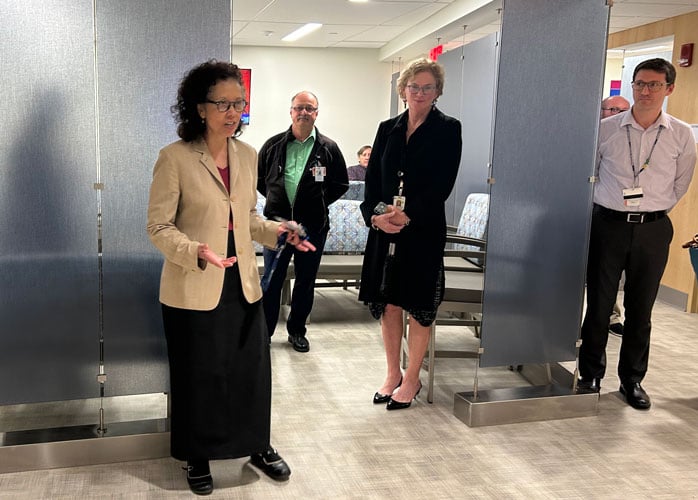 The interdisciplinary approach to care advances care for patients with ALS, AD and other related dementias, MS, migraines, functional neurological disorders, autism and developmental disorders, muscular dystrophy, Parkinson’s disease and movement disorders, epilepsy, and traumatic brain injuries.
The interdisciplinary approach to care advances care for patients with ALS, AD and other related dementias, MS, migraines, functional neurological disorders, autism and developmental disorders, muscular dystrophy, Parkinson’s disease and movement disorders, epilepsy, and traumatic brain injuries.
The Cognitive and Behavioral Neurology Clinic has recorded over 250 office visits in our first year, exceeding the initial goal by over 160%.
Behavioral Neurologists and Neuro-Psychiatric Neurologists provide insights into clinical care

Taylor Young, MD, a graduate of the neuropsych residency program shared, his process to learn about the neuropsych option was easier for him, as Dr. Sheldon Benjamin was connected to our UMass Chan residency program. Medical school students at other institutions may not have the same opportunity as there are only four programs in the US offering this dual residency program to med school students. Dr. Young is a psychologist supporting the Cognitive and Behavioral Neurology Clinic providing assessments and evaluations as a Cognitive Neurologist for patients with cognitive and memory issues, Alzheimer’s Disease, and other related dementias.
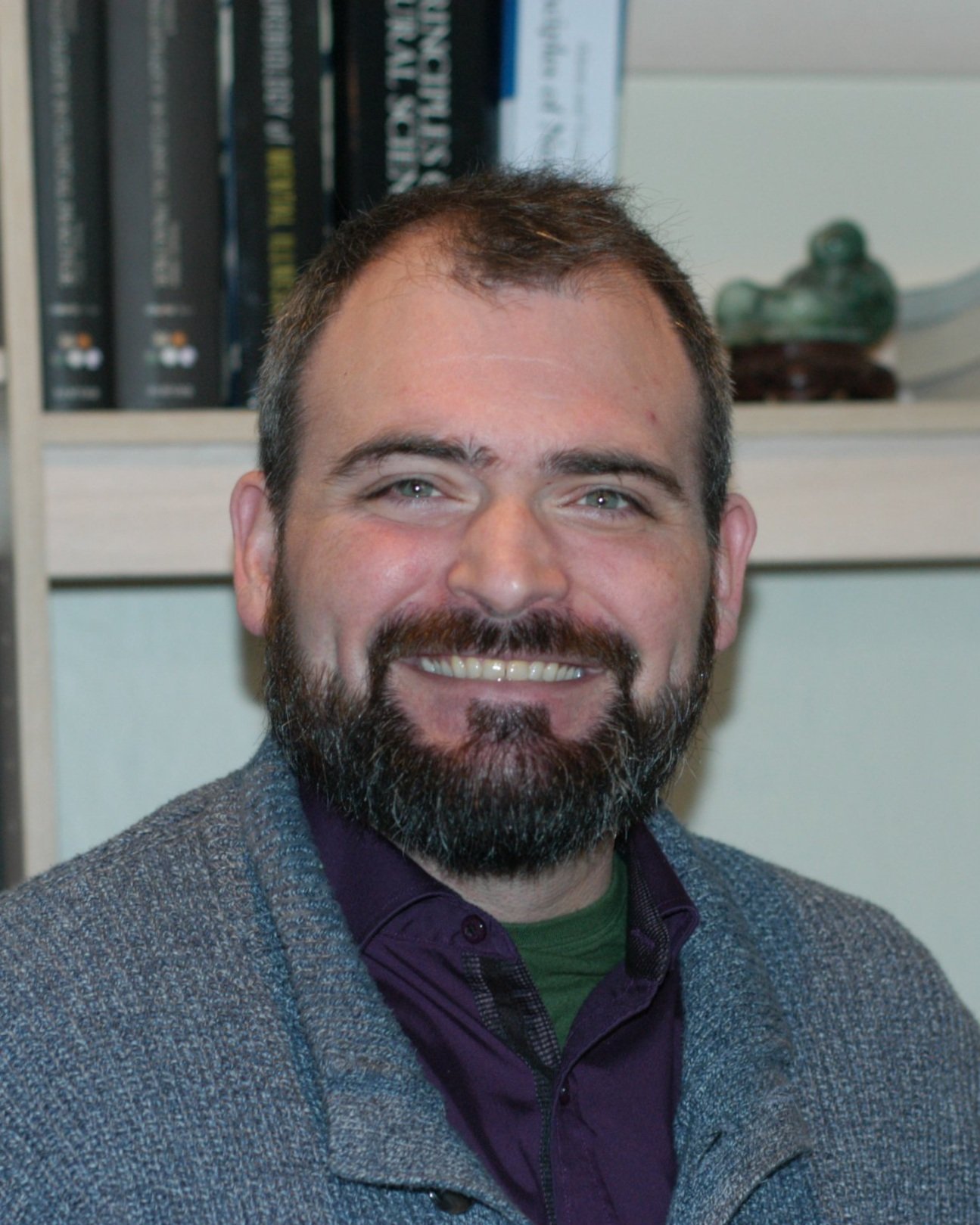
Joshua Claunch, MD, neuropsychiatrist, specializing in geriatric and dementia care, is one of the physicians working with patients in the cognitive and behavioral neurology clinic identifying co-mobilities through assessing the patient’s patterns of cognitive dysfunction with Taylor Young, MD, and Anila Media, MD. Their practice utilizes an interdisciplinary care approach to develop holistic treatment approaches and lifestyle recommendations to support the patient’s journey and quality of life.
Dr. Claunch shares, “The clinic environment works well, because all the providers are in one place, providing valuable discussions with the physicians developing specialized long-term care plans with the patients and their families.”
Dr. Claunch is interested in pursuing research goals in areas where “seeds of information need watering through research.” These areas provide opportunities to modulate neuroimmunology risks for patients with long-covid, or cognitive dysfunction. Dr. Claunch was attracted to the neuropsychiatry program because of the dual focuses between neurology and psychiatry stating, “There is so much untapped potential with care growth with guided holistic treatments.”
Dr. Claunch attended medical school at Florida State University before participating in the UMass Chan NeuroPsych Residency Program between 2014 and 2020. He was attracted to the dual-focused neuropsychiatry program at UMass Chan due to the reputations of Dr. Sheldon Benjamin, for his ongoing contributions to neuropsychiatry, Dr. Robert H. Brown, Jr., MD, for his contributions to neurological research, and Dr. John Kabat-Zinn, PhD, who founded the Mindfulness-Based Stress Reduction (MBSR) Clinic at UMass stating, stating, “There is so much untapped potential with care growth with guided holistic treatments.” Dr. Claunch joined our team as a physician in 2024.
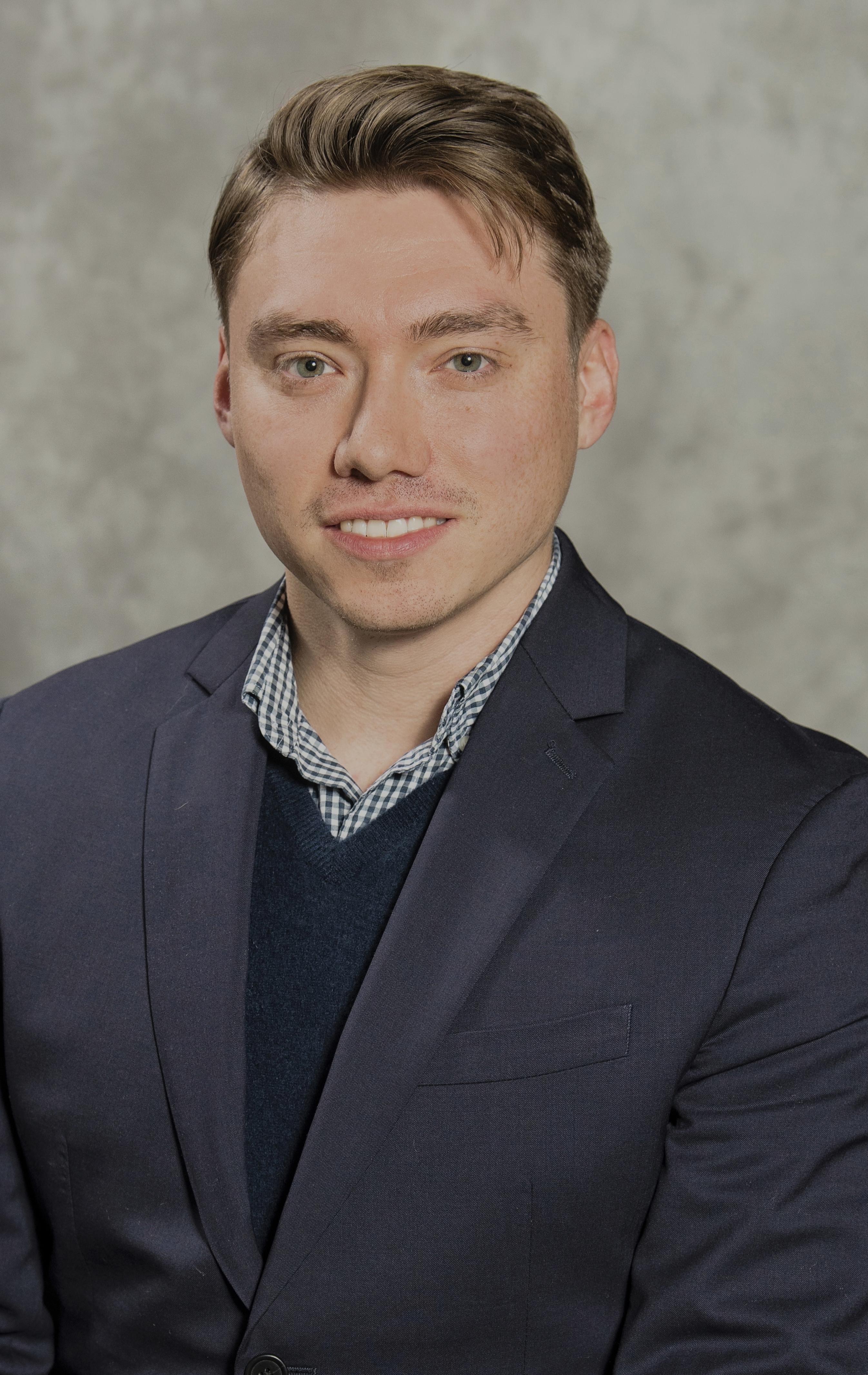
Stephen Nicholas
Stephen Nicholas, a fourth-year clinical psychology doctoral student with a concentration in neuropsychology at William James College, while supporting patients as a psychometrist in the Cognitive and Behavioral Neurology Clinic. Stephen gathers the cognitive concerns of the patient and administers a brief test battery designed by Dr. Barrett to score and formulate the patient’s cognitive strengths and weaknesses. These results prepare the treatment team and supervising clinician to assist with diagnostic clarification and further recommendations. Originally from Chicago, IL, Stephen joined UMass Chan as a graduate research intern working under Sohye Kim, PhD, with her innovative Baby Brain Study in October 2022. He is pursuing dual board certifications in clinical neuropsychology and the sub-specialty of pediatric neuropsychology crediting his initial training in cognitive neuroscience for instilling a passion in career options that clinically investigate brain-behavior relationships with an interest in the impact of adverse childhood experiences on executive functioning, neurocognitive late effects from cancer treatment, and interbrain synchrony using functional near-infrared spectroscopy.
He shares, “I have worked in assessment with both children and adult populations with a variety of psychiatric and medical conditions. Currently, I am completing my advanced practicum training at Brown University Health’s Rhode Island Hospital/Hasbro Children’s Hospital. There, I primarily assess children with epilepsy, various types of cancers, and pre-and-post neurosurgery cases, as well as Chiari I malformation cases.”
As a member of the cognitive neurology clinic, Stephen works closely with a team helping him grow as a neuropsychologist, from both administrative and clinical ends. His journey and involvement in the clinic offer the opportunity to support patients in real-time showing patterns of cognitive dysfunction which can include the monitored administration of the FDA-approved medication, Lacanomab, for qualified patient candidates.
Stephen shares, “I think the role of the psychometrist is fascinating because you can test hypotheses regarding neurocognitive function with real-time patient feedback. Depending on the pattern of findings, the clinician’s interpretation of the results can highlight deficits that are associated to specific neurodegenerative diseases or other conditions. Moreover, within the psychometrist role, you are assessing individuals that are situated in a vulnerable space, and I think it is a privilege to share that space with each patient.” He also recognizes the necessary support needed in caregiver burnout, which weighs on those caring for the patients who are living longer with the treatment solutions associated with cognitive rehabilitation by building skills to increase memory-related skills and supporting the deficits and impairments present in cognitive function.
Stephen is grateful for the direction and training he receives from neuropsychiatrists, Taylor Young, MD, and Joshua Claunch, MD, who have been more than generous with their time by discussing and formulating cases and providing literature to review to further aid in his development as a budding neuropsychologist. Clinic coordinator, Dayna Cardinal, NP, is pivotal in organizing their team, Anila Medina, MD, is a valuable resource in terms of understanding what resources are available to the patients, and AM Barrett, MD, has played a vital role in his development with her vision, knowledgebase, leadership, and teambuilding, which have been remarkable in curating his experience.